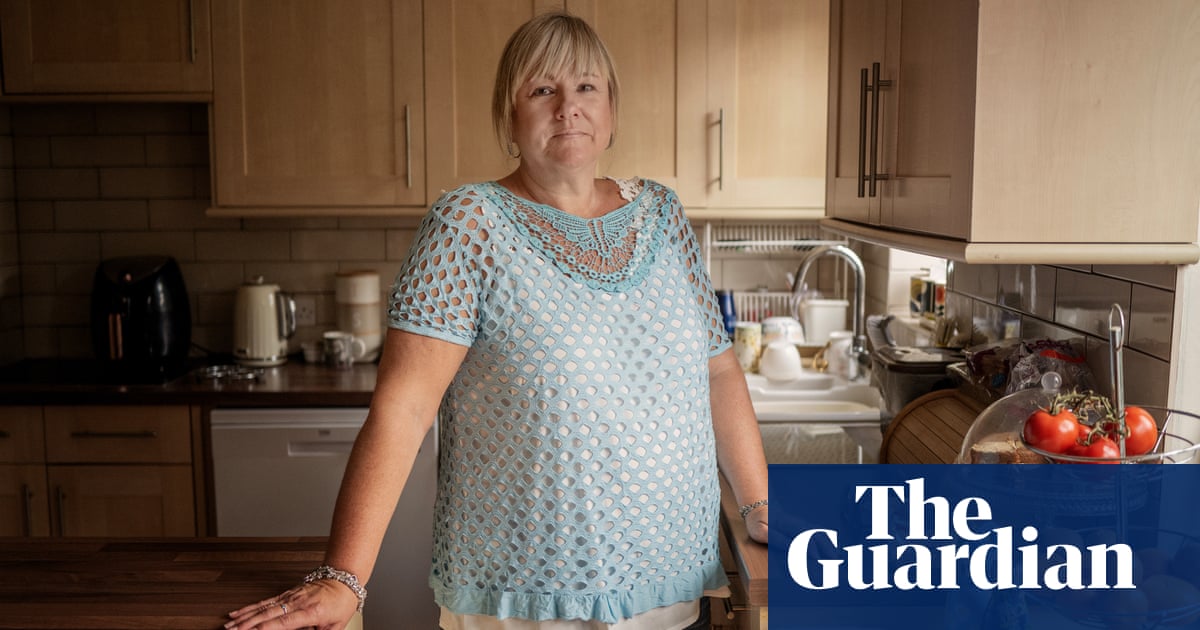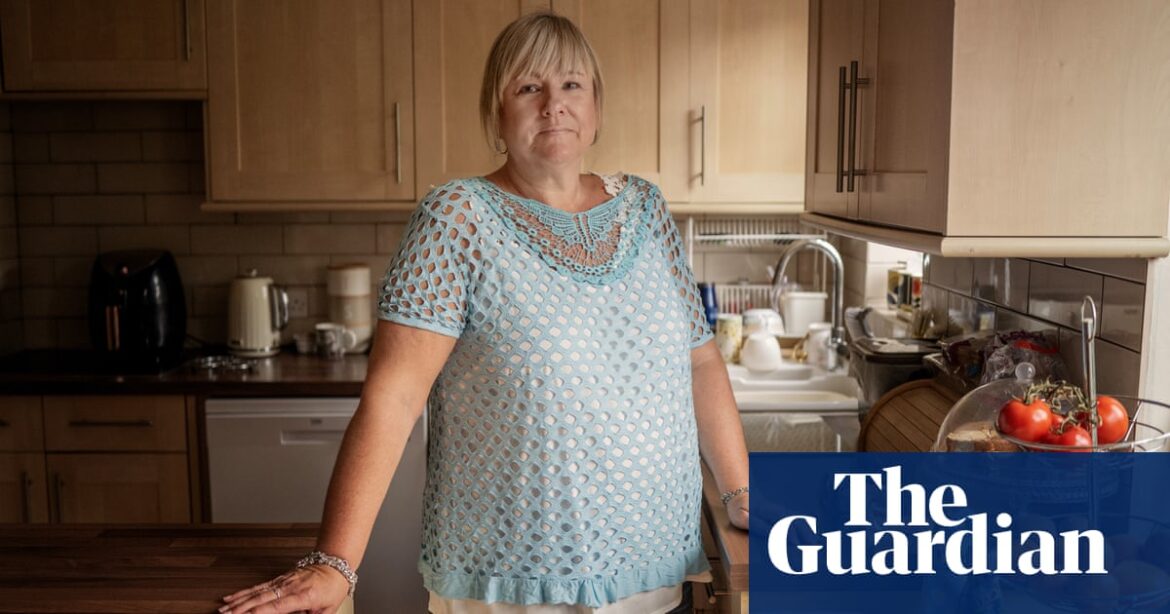
An unpaid carer is to challenge in the courts an “unfair and nonsensical” demand by welfare officials to repay £4,600 in carer’s allowance overpayments, five years after being advised by the same department she was following benefit rules correctly.
Andrea Tucker, a part-time charity shop worker who cared full-time for her mother for 15 years, told the Guardian the prospect of going to tribunal had made her ill with stress but she was determined to get justice.
“First I was upset, then I was angry, then it just wore me down. But it’s like the Post Office scandal – it takes the little people to stand up,” she said.
An ongoing Guardian investigation has revealed how draconian and rigidly enforced carer’s allowance rules saddled hundreds of thousands of people with huge debts in recent years.
Tucker’s case highlights the controversial issue of “averaging” whereby carers are penalised by the DWP for breaching weekly earnings limits even though their average net earnings over a month or a year are within the rules.
Averaging is allowed under social security law – and was once commonly approved by officials to make it easier for people with irregular earnings to work part-time and retain carer’s allowance.
However, official guidance introduced in March 2020 massively restricted the circumstances under which averaging could be used. This led to carers breaching earnings rules if they received, for example, one-off Covid payments, holiday pay or performance bonuses.
Tucker’s plight has been taken up by her local MP, the Liberal Democrat leader, Ed Davey, who raised it at prime minister’s questions last Wednesday. The prime minister, Keir Starmer, has promised to look into the case.
Davey, himself an unpaid carer for his teenage son John, has called on ministers to write off Tucker’s benefit debts and suspend all carer’s allowance overpayment demands until the conclusion of the independent government-commissioned review of the benefit, expected in the summer.
“The way DWP treated Andrea and thousands of carers like her makes my blood boil. The government urgently needs to get to the bottom of this and put things right for carers,” Davey told the Guardian.
Labour has vowed to end the scandal that has seen hundreds of thousands of unpaid carers like Tucker forced to repay unwittingly accrued overpayments. More than 600 carers have been prosecuted for fraud since 2019.
Latest official figures show more than 134,500 unpaid carers are paying back more than £251m after unwittingly falling foul of drastic “cliff-edge” rules on earnings limits. This means a carer who earned £1 more than the current £151 a week threshold for 52 weeks would have to pay back not £52 but £4,258.80.
Tucker, 57, of Chessington, Surrey, said she phoned the DWP in July 2019 to report she was taking a part-time job with irregular hours. She was told she would not be penalised if her total earnings, averaged over a 12-month period, did not exceed carer’s allowance earnings limits.
The DWP changed its guidance in March 2020 to in effect outlaw the 12-month retrospective arrangements used by Tucker. It did not inform her of this change, she said.
Tucker, who will be at a social security tribunal appeal on Tuesday, has prepared detailed figures demonstrating that in each of five successive years her income from paid work did not exceed annual earnings limits. Some months she worked up to six hours for free to ensure she remained within the rules.
She is furious that while the DWP is likely to have received electronic alerts showing she had apparently breached earnings limits 16 times between 2019 and 2024, they did not warn her about this. They allowed her to unwittingly accrue £4,600 in overpayments before finally writing to her last year to ask her to repay it.
Davey said her treatment was “wholly nonsensical and unfair” and her punishment draconian. “It seems that DWP could and should have been taking Andrea’s average income over the year, as she had been told they would – so she should never have been asked for repayments, let alone being dragged before a tribunal,” he added.
A DWP spokesperson said: “This government understands the struggles carers are facing, which is why we have launched our independent review of carer’s allowance to explore how overpayments have occurred and what changes can be made to reduce the risk of them accruing in the future.
“We recognise overpayments have caused anxiety for people, that’s why it is important to take the time to independently review these circumstances so we can find out exactly what went wrong and make things right.”
Source: theguardian.com



